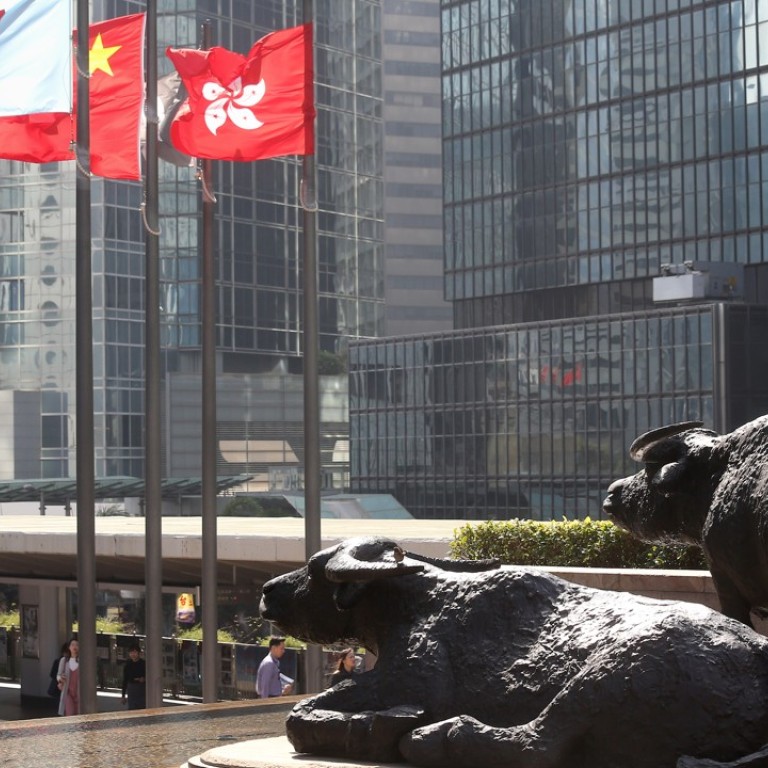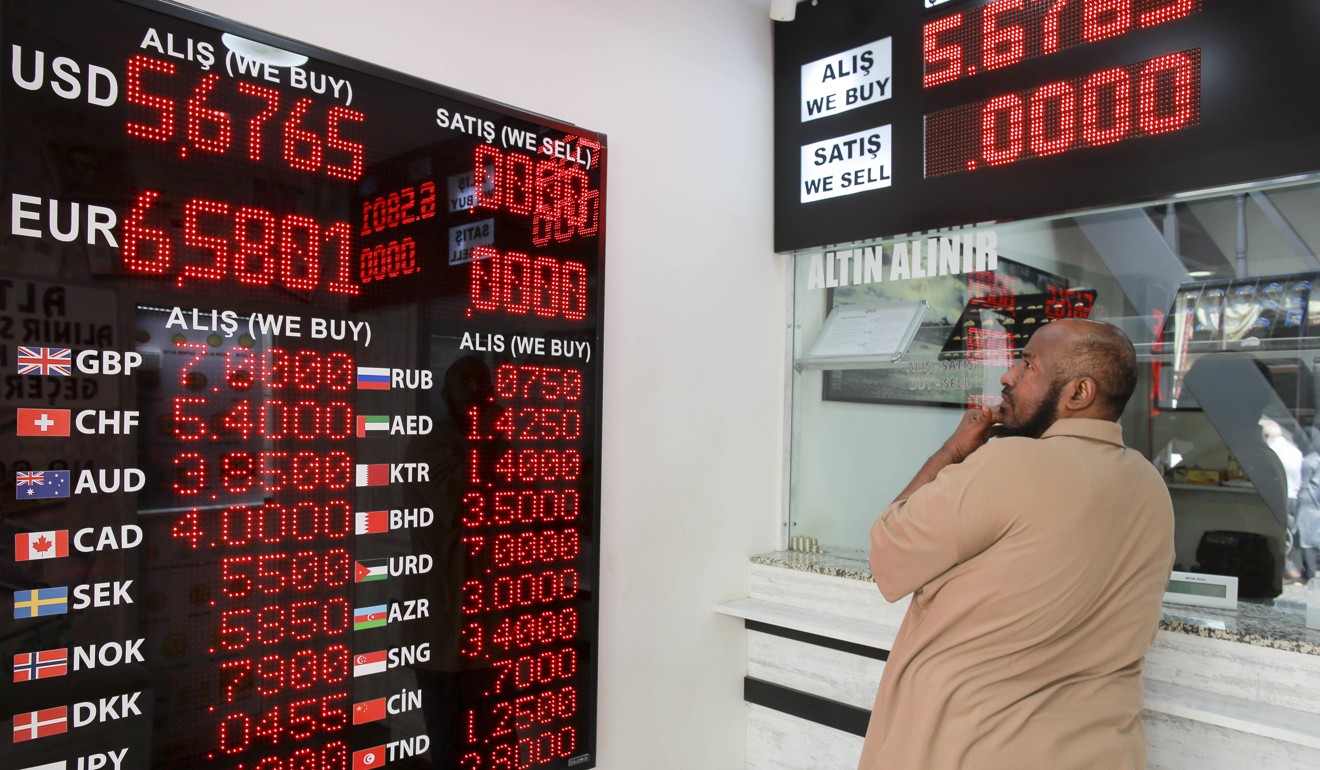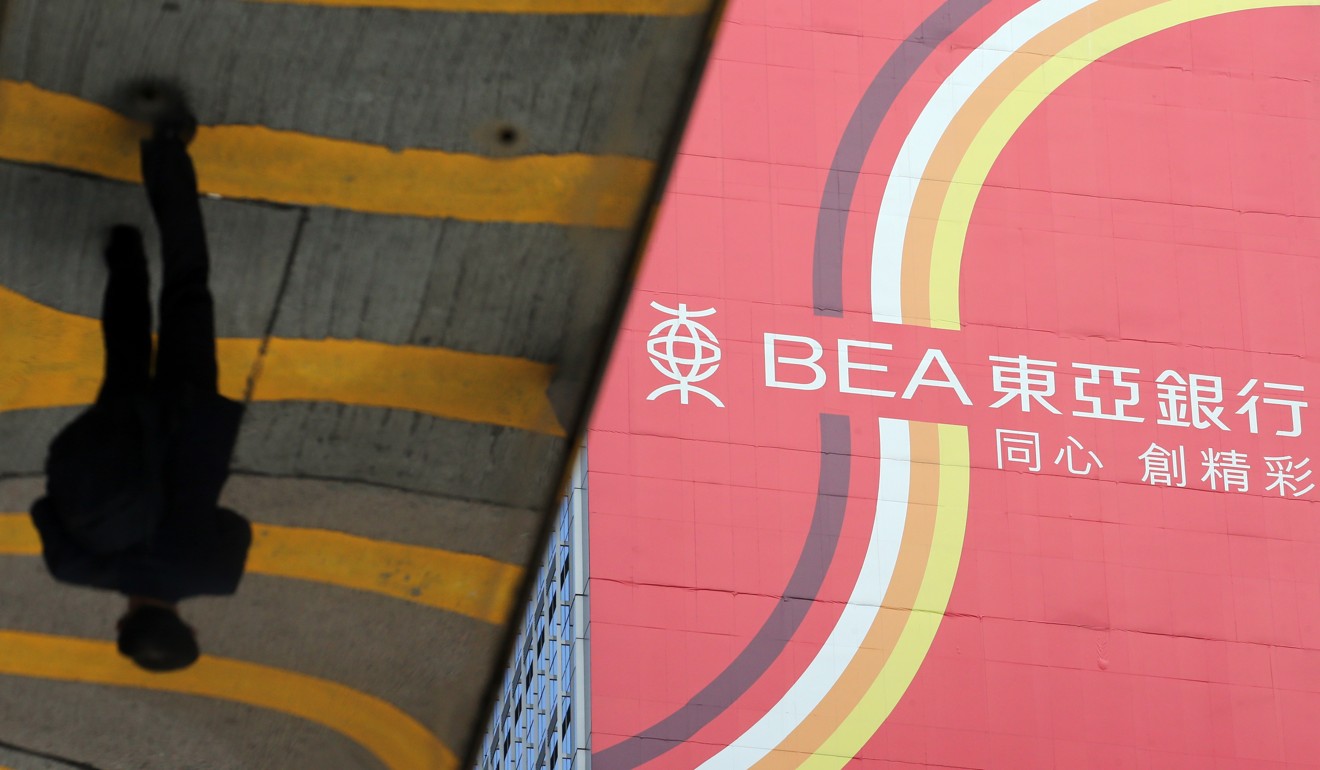
Hong Kong and China stocks slide as turmoil in Turkish currency roils Asian markets
Investors fear contagion risks that may spill over to Asia
Hong Kong and mainland’s stocks slid on Monday as the Turkish lira crisis roiled regional markets from equities to currencies.
The Hang Seng Index dropped 1.5 per cent in the biggest decline in more than a week. The mainland’s Shanghai Composite Index fell 0.3 per cent after recouping most of the intraday loss, as the nation’s regulator asked commercial banks to increase lending to aid economic growth.
The Turkish lira hit a fresh record low on Monday with a further 6 per cent drop after the Trump administration’s doubling of tariffs on steel and aluminium imports from the nation sent the currency tumbling by 18 per cent on Friday. China’s onshore yuan weakened to its lowest level against the US dollar in 14 months and the South Africa’s rand dropped to a June 2016 low, while stock benchmarks from Japan and South Korea to Taiwan shed at least 1.5 per cent. The US dollar index rose to a 13-month high.
The collapsing Turkish currency “may fuel volatility in emerging-market assets and dampen investor sentiment in the near term, as markets are already skittish,” said Kerry Craig, a global market strategist at JPMorgan Asset Management. “The rise in the US dollar more broadly poses a greater risk to the emerging-market Asian outlook.”
The Hang Seng Index fell 430.05 points to 27,936.57 at the close, with 47 out of the 50 constituents on the benchmark ending the day lower. The Hang Seng China Enterprises Index, or the H-share gauge, sank 1.6 per cent.

Bank of East Asia and China Merchants Port Holdings topped the worst performers on the Hang Seng Index. The two companies, the long-term member stocks of the benchmark, will be kicked out of the gauge from September 10. Bank of East Asia slid 5.8 per cent to HK$28.50 and China Merchants Port shed 4 per cent to HK$15.74.
Their replacements that will be added to the measure bucked the market decline. Shenzhou International Group Holdings, China’s largest knitwear manufacturer, rose 2 per cent to HK$96.60 and Chinese drug maker Sino Biopharmaceutical gained 4.1 per cent to HK$10.78.
Sunny Optical Technology Group dropped 4.2 per cent to HK$121.10 after the smartphone camera modules and lenses maker said on Friday its July shipment volume of handset lens sets increased at a pace that missed market forecasts.
Chinese educational operators trading in the city took a beating after the Ministry of Justice promulgated a draft law that will ban entities in the sector from making acquisitions, adding to franchise chains and partnering with non-profit public schools in their management. The draft aims to solicit public views.
Wisdom Education International Holdings slumped 40 per cent to HK$4.12, China Yuhua Education plunged 37 per cent to HK$3.40 and China Maple Leaf Educational Systems tumbled 31.1 per cent to HK$4.48.

The rise in the US dollar more broadly poses a greater risk to the emerging-market Asian outlook
In the mainland, the Shanghai Composite slipped 9.44 points to 2,785.87 at the close after falling as much as 1.9 per cent in intraday trading. The ChiNex index of smaller companies rallied 1.3 per cent on expectations of looser liquidity.
In a statement put out on its website over the weekend, the regulator overseeing the bank and insurance industries said it guided financial institutions to advance more loans to support funding for the real economy. Banks were also asked to retain more profits and speed up disposals of non-performing loans to boost the capital adequacy ratio for more future lending, the statement said.
Technology companies gained to limit the loss on the broader market after the government unveiled a three-year development plan aimed to boost consumption in the information industry by an annualised rate of more than 11 per cent. Fuchun Technology, a maker of telecommunication equipment jumped by the 10 per cent daily limit to 5.02 yuan and China National Software & Service surged 10 per cent to 30.72 yuan.


